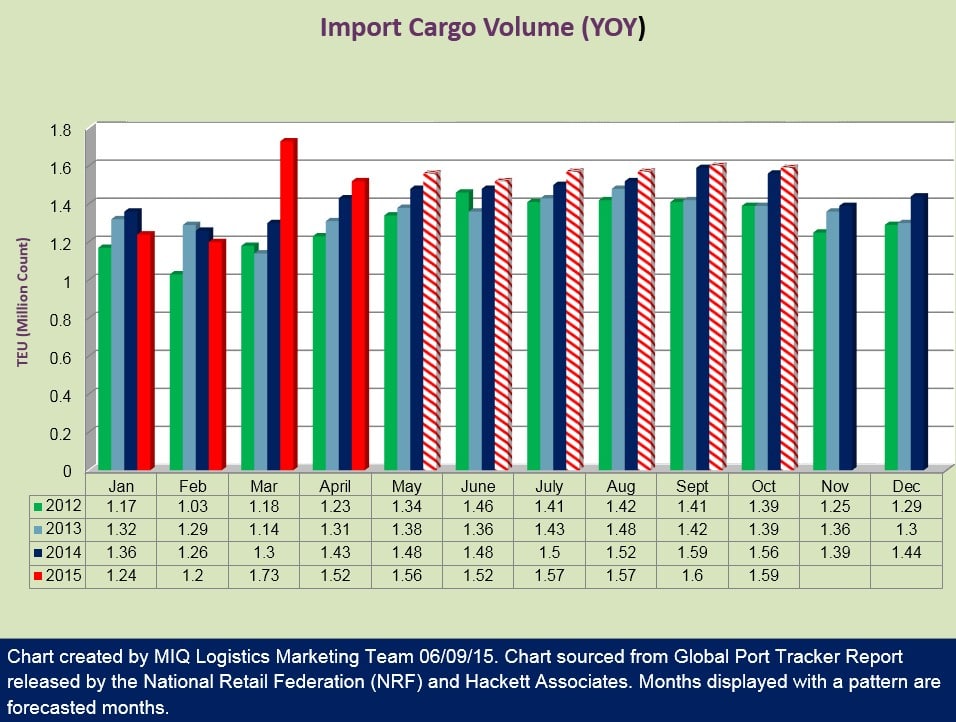Import cargo volume at the nation’s major retail container ports has returned to normal levels following ratification of a new West Coast labor agreement, according to the monthly Global Port Tracker report released today by the National Retail Federation and Hackett Associates.
“Despite some lingering labor issues, the volume of cargo and the rate of growth have both largely settled down,” NRF Vice President for Supply Chain and Customs Policy Jonathan Gold said. “There are still congestion issues to be dealt with but we’re hoping to see reasonably normal back-to-school and holiday seasons this year now that the tensions of contract negotiations are behind us.”
The Pacific Maritime Association and the International Longshore and Warehouse Union both voted in May toratify a new five-year contract agreed to in February. The lack of a contract and operational issues led to crisis-level congestion at West Coast ports after the previous agreement expired last July.
Ports covered by Global Port Tracker handled 1.52 million Twenty-Foot Equivalent Units in April, the latest month for which after-the-fact numbers are available. That was down 12.4 percent from March, when numbers were driven up by a surge of backlogged cargo after the labor dispute ended, but up 6.1 percent from April 2014. One TEU is one 20-foot-long cargo container or its equivalent.
May was estimated at 1.56 million TEU, up 5 percent from 2014. June is forecast at 1.52 million TEU, up 2.6 percent; July at 1.57 million TEU, up 4.9 percent; August also at 1.57 million TEU, up 3.3 percent; September at 1.6 million TEU, up 0.6 percent, and October at 1.59 million TEU, up 1.8 percent.
The first half of 2015 is forecast at 8.8 million TEU, an increase of 5.4 percent over the same period last year.
Hackett Associates Founder Ben Hackett said a “stubbornly high” inventory-to-sales ratio after last year’s rush to bring in adequate stocks of merchandise will couple with other economic factors to affect cargo volumes through the summer.
“The West Coast recovery remains sluggish and the East Coast is not managing to hold on to the growth levels it has experienced over the past few months,” Hackett said. “June is going to be a mixed month for the West Coast with volatility between the ports, but July and August are projected to see growth across the board. On the East Coast, we are projecting growth for most ports.”
>> Click here to access the article from the National Retail Federation.

